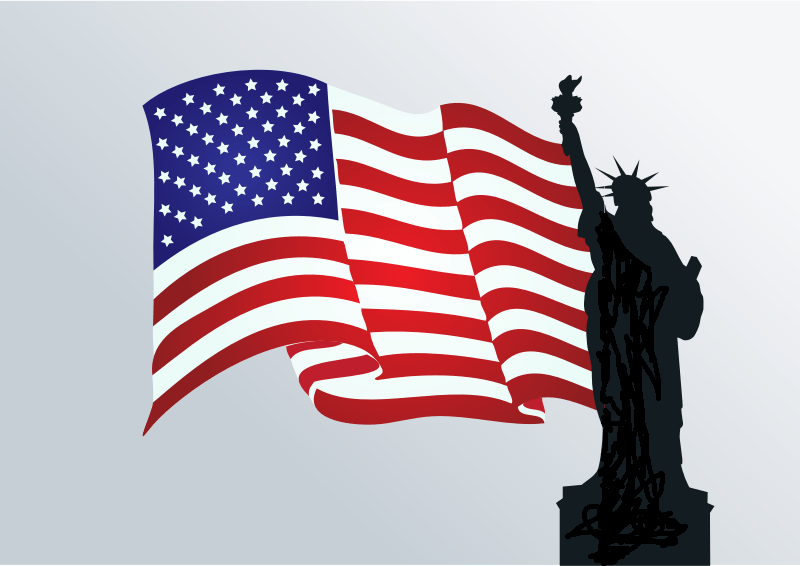The United States is associated for many with optimism and confidence. Built on the ideal of the American dream – the individual’s ability to succeed based on hard work and talent, the country has epitomised the hope and promise of the new world over the old for centuries. But what happens when this confidence falters? When events both at home and abroad, conspire to undermine the dream so long cherished by many. Under the auspices of think tank, CSIS, a group of experts recently gathered to discuss how this loss of confidence will affect America’s ability to tackle growing competition from China. Although none used the term – the ghost of the American dream is difficult to dispel. What does America look like in the 21st century? How are current immigration and education policies affecting its ability to reimagine itself in the digital age?
Like all great nemeses, China has forced America to confront itself in a way that no other country has done since it gained independence from Britain almost 250 years ago. The United States of America is a young country, typically characterized by the sort of optimism and idealism that would have raised eye brows and little else in the Old World. The story of America’s success has been difficult to dispute until fairly recently. As China, with 14% of the world’s population continues to grow at exceptional rates, the US, with 4% of the world’s population, finds itself less certain about its ability to win what some have termed a second Cold War. ‘I think we feel stuck and stagnant now as a country – we struggle to think big’ says US Congressman, Andy Kim.
5G battle with China was a wake-up call for the US – Andy Kim, Congressman
The New Jersey congressman explains, ‘We cannot sustain another ten years of stagnation as a country and expect to be on top’. Kim highlights the key role that education and innovation have played in America’s success. But suggests that it is less competitive than it used to be, particularly in STEM subjects. He points to the 5G battle with China as ‘a wake-up call’. Nevertheless, the US continues to be home to over 40 of the world’s best universities. This compares to just three such top institutions in China, explains Yingyi Ma, Associate Professor of Sociology at Syracuse University.
America also continues to boast a stay-rate of 80% of Chinese doctoral students – top students who have typically won funding based on ability. The author of a recent book on Chinese students in American higher education, Ma explains that this contrasts with undergraduate students. In this group, 90% are funded by their families and a much higher proportion return to China. As Ryan Hass of the Brookings Institution points out, only 20% of America degree holders are STEM graduates, in China it is 33%. Clearly it is in America’s best interests to attract and keep Chinese graduates in these fields. This raises the increasingly charged issue of immigration.
‘There is nothing more unattractive than a lack of confidence’ – Kaiser Kuo
The US is a nation of immigrants. The ‘melting pot’ of American culture has typically been seen as a great strength borne out by history itself. However recent attitudes toward immigration have shifted. A less open, more protectionist stance gained solid footing during the Trump administration. This has been characterised by hardening attitudes toward immigrants including those from China. Yet it is precisely these attitudes that must be avoided if America is to regain its confidence and succeed in the twenty-first century. As Kaiser Kuo, host and founder of the Sinica podcast, points out, soft power is simply the power of attraction rather than coercion. Racism on the other hand, repels. ‘There is nothing more unattractive than a person who lacks confidence, this is America’s central problem’, he maintains.
An erosion of confidence by Americans in their institutions and most importantly in their values, has created doubt and uncertainty, where previously there was clarity and optimism. Yet as Kuo so rightly asserts, the values of openness, tolerance and rule of law are the one thing that cannot be sacrificed. These values cannot flourish in a climate of fear and mistrust. Fears about losing the battle with China or, as Kuo puts it, ‘America getting its butt kicked’, undermine what Hass describes as America’s winning formular. This is: the country’s brain gain from places like China; rule of law; deep liquid capital markets and a focus on research and development from some of the best universities in the world.
Resurrecting the American Dream
The key, as Kim and others agree, is a much clearer focus on an affirmative view of America’s vision of itself. ‘What are we building towards and why does it matter?’ is the question Americans should be asking themselves, says Hass. Perhaps most importantly, this means being clear about exactly where the US is competing with China and where it’s not. The tendency toward scapegoating and generalisation is destructive. Indeed, as the US faces a downward trend in population growth, immigration could be used as a tool to leverage in the competition with China, points out Kim. But more than anything, the US needs to regain it’s national confidence, maintains Kuo. Let’s hope that President Biden, together with the vast majority of the American people, can resurrect the much maligned but undeniably enduring American dream.

